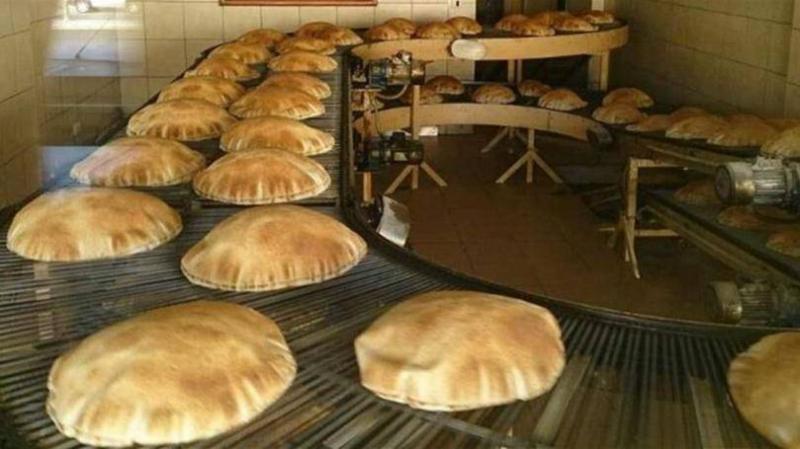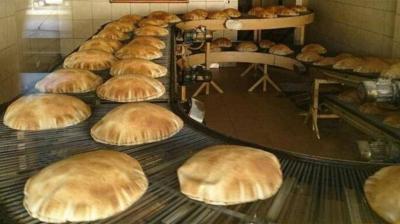The exchange rate of the dollar and the economic financial crisis have undermined what little purchasing power remains for a small portion of Lebanese citizens, even for basic food supplies, including bread. Currently, the country is experiencing a shortage in bread production due to several mills halting deliveries; despite having wheat available, they are unwilling to proceed without the state settling its debts for the wheat. Bakery owners demonstrated yesterday in front of the Ministry of Economy, demanding that wheat be provided to the mills and that a price for a loaf of bread be set in accordance with the exchange rate. The protesters also urged the new parliament to expedite the approval of a loan from the World Bank to support wheat procurement.
Today, the Ministry of Economy and Trade raised the price of a loaf of bread by 2000 Lebanese pounds, setting the smaller size (365 grams) at 9000 pounds, the medium size (825 grams) at 15000 pounds, and cancelling the large size. The ministry announced that a complex set of factors necessitated the new pricing, including "the rapid rise in the dollar exchange rate as well as the significant increase in fuel prices, which directly affect flour production costs, the cost of producing a loaf of bread, and transportation, in addition to the rise in wheat prices in global markets due to the Ukrainian crisis."
In this context, Antoine Saif, head of the bakers' association in Mount Lebanon, indicated to "Al-Markaziya" that "the pricing is beyond our control and is a result of the rise in the exchange rate and the prices of raw materials and fuels. The adjustments are made in agreement with the Ministry of Economy, and whenever there is a change in the exchange rate or raw material prices, we refer back to the price table, as occurs daily in the fuel sector."
When asked if this pricing aligns with their demands, he replied, "We would prefer that a loaf weighing 800 grams be priced at 15000 pounds based on a scientific study and price table; however, the Minister of Economy opted for a weight of 825 grams at this price.” Regarding wheat supplies, Saif clarified that "there are no new developments on the issue, and all bakeries are not operating normally because they do not have enough flour as several mills are not producing." He added, "Once the Central Bank pays the mills' dues, the market will ease. We have received a promise to pay for the subsidized wheat available in the mills by the beginning of next week."
Concerning the World Bank loan, he noted that "negotiations are ongoing between the bank and the Ministry of Economy, but no agreement is yet ready regarding the working mechanism and funding, nor whether the loan will be paid to the supplier abroad or if Lebanon will receive it in cash and pay it back through the Central Bank. We do not know how the ministry and the state will proceed... Also, the mechanism requires a law from the parliament. Therefore, there is concern about a delay in the loan, while the locally available wheat is only sufficient for more than 25 days. Thus, continuing bread production requires that the Ministry of Economy and various stakeholders in the bread sector finalize the agreement with the World Bank as soon as possible to purchase wheat."




